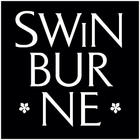Bachelor of Laws / Bachelor of Media and Communication
Bachelor of Laws / Bachelor of Media and Communication
The Bachelor of Laws / Bachelor of Media and Communication combine studies in commercial law, emphasising intellectual property law, with the knowledge to specialise in the media, communications and multimedia industries. Learn about trademarks, patents and designs, copyright, the prohibition of misleading or deceptive conduct and competition law. Gain the…
Categories
COURSE DESCRIPTION
The Bachelor of Laws / Bachelor of Media and Communication combine studies in commercial law, emphasising intellectual property law, with the knowledge to specialise in the media, communications and multimedia industries.
Learn about trademarks, patents and designs, copyright, the prohibition of misleading or deceptive conduct and competition law. Gain the skills to protect the rights of those who innovate or create.
You’ll also develop professional communication skills and learn how the media is evolving through an examination of issues such as ownership, control of the media and the impact of new media technologies on society.
Work Integrated Learning is a guaranteed part of all our bachelor degrees. In this double degree, you’ll complete law-related professional experience placements at organisations in Australia or overseas. You’ll also be introduced to the practical aspects of legal practice through moot court scenarios and advocacy exercises. And in a Media and Communications Project relevant to your major study area, you’ll have the opportunity to apply your learning in a professionally focused, industry-linked project.
Course learning outcomes
Upon successful completion of the Bachelor of Laws, graduates should be able to:
- describe and demonstrate the application of the fundamental areas of Australian law and the Australian legal system and of the principles and doctrines that underpin them
- describe and demonstrate the application of ethical and professional responsibility in the practice of the law and a commitment to the pursuit of justice
- analyse and evaluate the interdisciplinary contexts in which legal issues arise and the disciplines and policy considerations that influence the content and operation of the law
- describe and compare the international legal order and the law and legal systems of Australia’s major trading partners
- critically evaluate events or factual situations, identify the legal issues to which they give rise and develop and articulate appropriate and creative responses
- undertake and critically evaluate research from a variety of sources to make judgements to solve complex legal problems with intellectual independence
- demonstrate effective and persuasive communication capabilities with legal and non-legal audiences
Upon successful completion of the Bachelor of Media and Communication, graduates will be able to:
- demonstrate knowledge, conceptual understanding, technical skills and expertise in the broad field of media and communication
- formulate arguments that draw on and critique the differences between relevant theories and evidence as they pertain to the field of media and communication
- exercise initiative and judgement in planning, problem-solving and decision-making in professional practice and/or scholarship, individually and in collaboration with others
- demonstrate critical analysis, creativity and problem-solving in relation to a range of media and communication activities and processes
- recognise and reflect on social, cultural, legal and ethical issues relating to media and communication industries in local and international contexts
REQUIREMENTS
If you’re currently in Year 12 or have completed Year 12 in the last seven years, you’ll be considered for admission to undergraduate courses primarily based on whether you have successfully completed the Victorian Certificate of Education (VCE), or an interstate or international Year 12 qualification.
English language requirements
Satisfactory completion of one of the following:
- Swinburne’s English for Academic Purposes (EAP 5 Advanced level) with overall 70%, all skills 65%
- minimum IELTS overall band of 6.5 (Academic Module) with no individual band below 6.0
- Pearson (PTE) minimum score of 58 (no communicative skills less than 50)
- TOEFL iBT (internet-based) -79 (no less than 13 in reading, 12 in listening, 18 in speaking 21 in writing)
- C1 Advanced – 176, no band less than 169
- any other equivalent assessment of English language proficiency.
EDUCATIONAL INSTITUTION
Swinburne University of Technology is a public university based in Melbourne- that is among the top 3% of universities in the world. The University focuses on science, technology and innovation and offers courses well recognised by professional organisations. The Good Universities Guide 2016 awarded the University five stars for both graduate satisfaction and generic skills and four stars for teaching quality. It also features in the top 200 ranked universities in the QS Graduate Employability Rankings; and enjoys close ties with industry- providing students with invaluable workplace experience.




